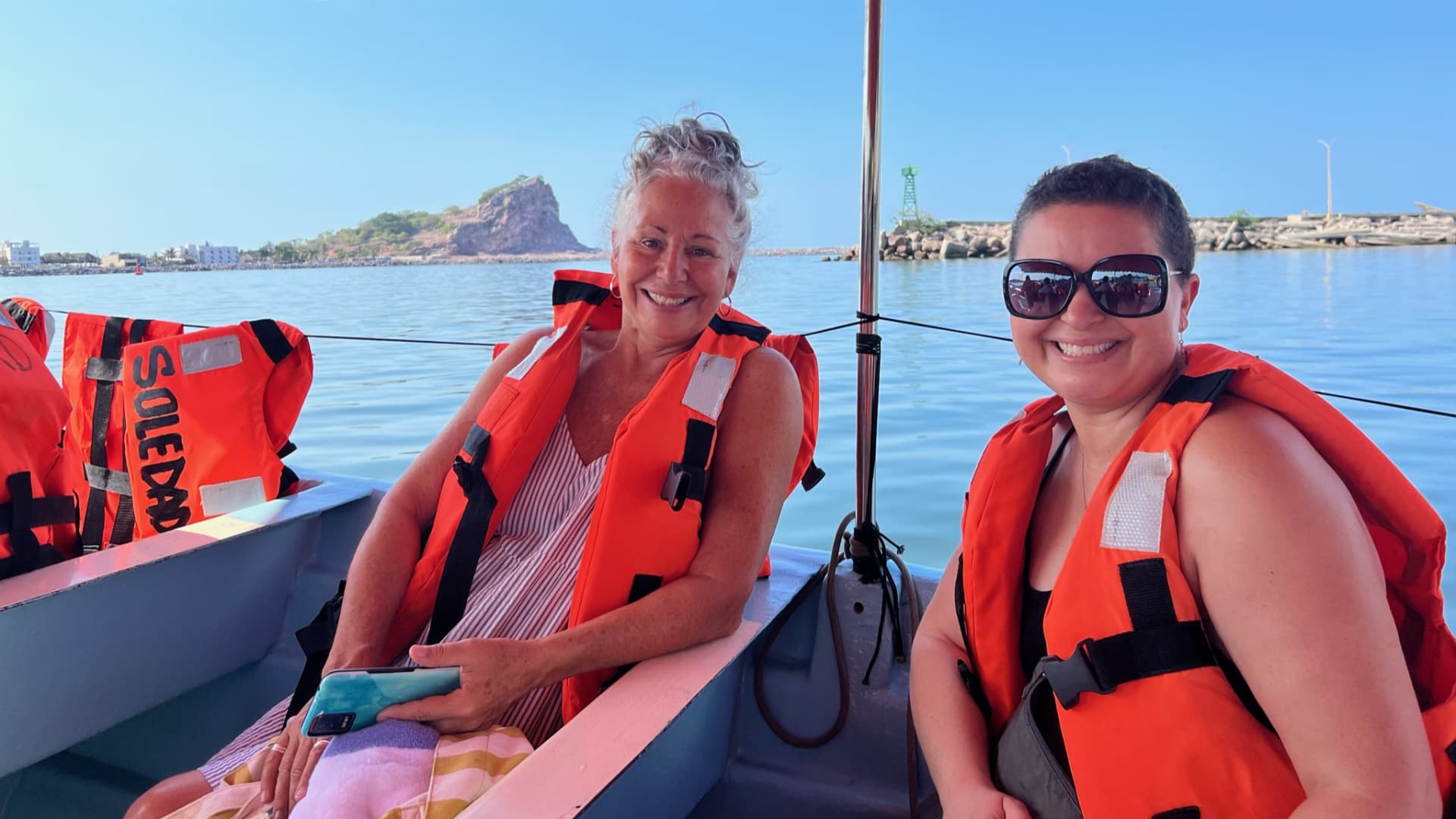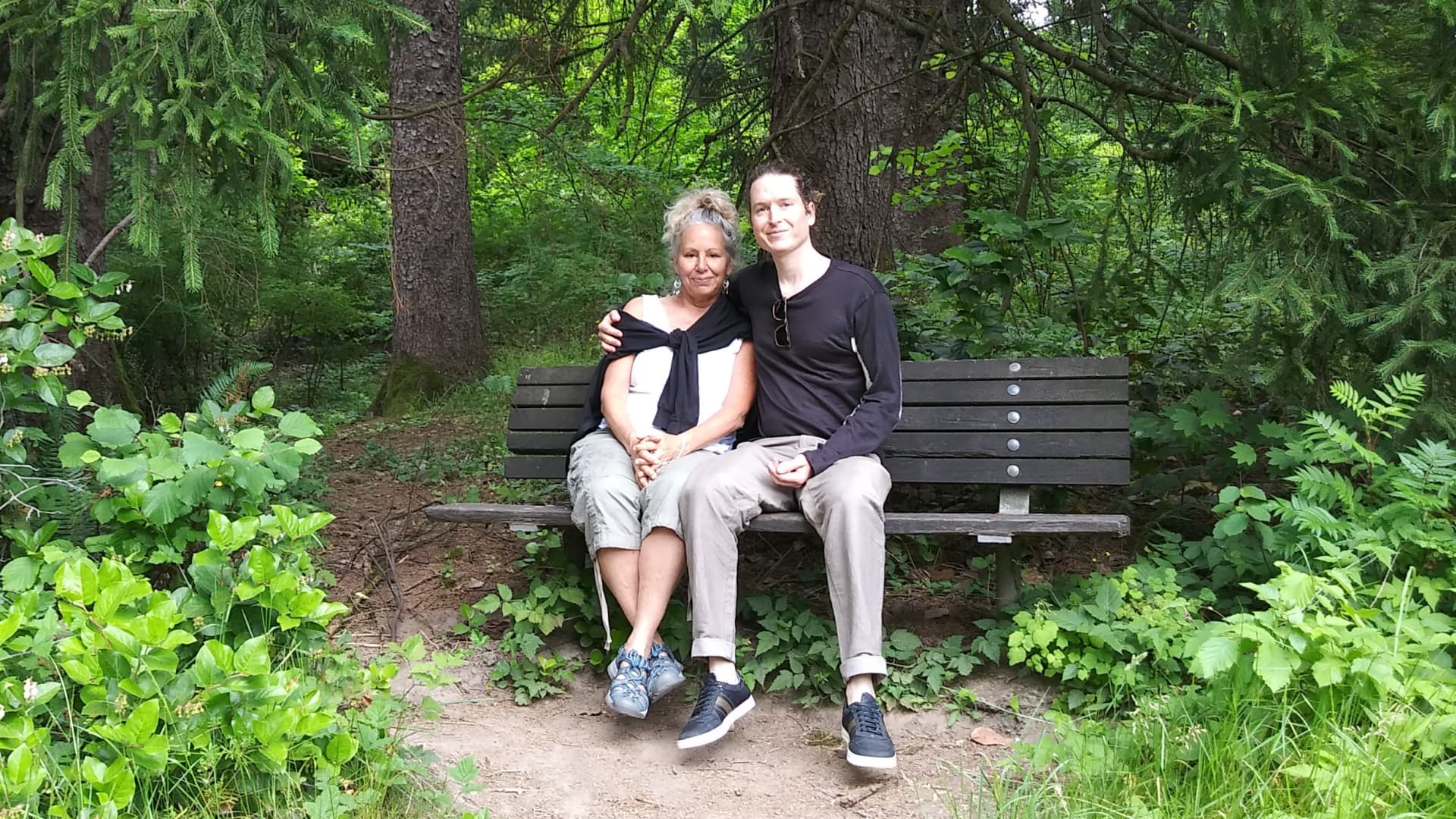
I never really thought about retirement. Then, suddenly, it was 2018 and I was old enough to collect Social Security and stop working.
A dozen years earlier, I'd moved to Mazatlán, Mexico. Unlike some expats, I still needed to support myself. I'd been a journalist in California, so I started an English-language magazine and published it monthly for a decade.
Watch NBC6 free wherever you are
>I sold the business when I began receiving Social Security at age 62. Should I have waited longer? Perhaps. But I was ready to get out of the rat race. I needed to see who I was without the pressures of working so much. And, truth be told, I wanted an adventure.
Today, at age 68, I'm still retired. I do a little freelance writing, but without the stress of a daily job. Having my time really and truly be my own is a luxury. I'm grateful for every moment.
Get local news you need to know to start your day with NBC 6's News Headlines newsletter.
>But being retired presents a new, unexpected set of challenges, too. Here's what I didn't see coming.
A lack of schedule can be empowering
At first, it was hard to let go of the feeling that I needed to be "measurably productive" every day.
Money Report
My job was a big part of my identity, and I always gave 110%. As my own boss, I was basically responsible for everything from ad sales and design to editing, writing and distribution. And when your office is at home, it's difficult to stop working at 5 o'clock or see weekends as days off.
Slowly but surely, though, my new normal developed, one that didn't include as much stress or hectic scheduling. I still make lists — it's just who I am — but things can often move from day to day or week to week, and that works just fine.
Do I transplant the big palm in the living room this Friday or next Wednesday? Should I do grocery shopping today or tomorrow? It really doesn't matter, and I do such a small amount of freelance work that those deadlines are easy to meet.
I might spend all day planning and making a new recipe, or get absorbed in a book and read for hours. An especially beautiful morning might mean having a beach day instead of whatever else I'd planned.

I'm starting to look into volunteer opportunities, a first for me. And I can be spontaneous: A meal or phone call with a friend might turn into an afternoon-long get-together.
Productivity still matters for me — it just isn't the only metric I use to judge how fulfilling my life is anymore. Funny as it sounds, I had to re-learn just how much contentment, joy and personal satisfaction matter, too.
A lack of structure can throw you off balance
Being retired means having more free time, and many of us begin to think more deeply about things. It's easy to feel lost and wonder if what you've accomplished so far is all you'll ever do with your life. At times, I feel desperate or determined to do at least some of the things I've always wanted to do. I rethink my bucket list frequently.
Some of that has to do with a lack of structure. You can't spend every moment of your retirement jet-setting or living a vacation lifestyle, and most of us can't afford that, anyway.
So, what do you do with yourself every day?
For me, it starts with cultivating a certain self-discipline and positive mindset, no matter what. That's vitally important for counteracting those unsettling sensations of feeling unmoored without a game plan for the future.

The next step is learning that a less busy lifestyle doesn't have to be boring. I'm finally able to take more time for self-care, for example: a daily siesta, regular yoga and stretching, and staying in touch more with family and friends.
Instead of a mad rush to get to work, my mornings are peaceful, with time to journal, meditate, make a careful cup of coffee and slowly allow the day to begin.
You need a new mindset to thrive
As I watch people struggling with problems and situations I've lived through and somehow (miraculously!) gotten to the other side of, I remember how those things felt when they were happening to me.
Relationships or marriage(s) gone wrong, financial anxieties, obnoxious bosses or roommates or in-laws, the challenges of child rearing? Been there, done that.
As a result, I've seen my heart become softer and more compassionate toward others, and kindness become more of my go-to response. I'm learning to be patient and non-judgmental with myself, too. Rather than regretting that I don't have more material things or financial freedom, I'm trying to be grateful for the many blessings I do have in my life.
That's important, regardless of your age when you retire: Not having to go to work is only the beginning. You can dare to be open to possibility in ways you never imagined before — including, in my case, living in another country.
Stresses and worries about any number of things do their best to haunt me. I try hard to see the glass as half full. It's a choice to think like this, and it's not always easy. But the alternative is not the me I want to be.
Janet Blaser is a writer who has lived in Mexico since 2006. A former journalist in California, her work now focuses on expat living. Janet's first book, "Why We Left: An Anthology of American Women Expats" is an Amazon bestseller. Follow Janet on Instagram and Facebook.
Want to make extra money outside of your day job? Sign up for CNBC's new online course How to Earn Passive Income Online to learn about common passive income streams, tips to get started and real-life success stories. Register today and save 50% with discount code EARLYBIRD.






